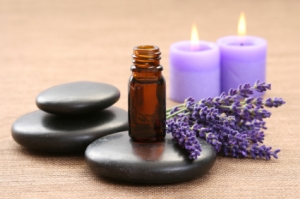Editor’s note: Dandelions and Bad Hair Days has brought me into contact with some really interesting and honest writers and Melanie is definitely one of them. She is a freelance writer, mother and is currently working on her first novel. Recently having been diagnosed with Bipolar Disorder, she embarked on a mission of self-help, to assist alongside her medication and talking therapies. Her guest post today details some of the methods used by her and others to ease their symptoms during what can be a difficult time of year for many. Do take a look at her own blog over at Molly Doubly-Barrely.
Self Therapies – A holistic approach to mental illness
A commonly uttered phrase I have been hearing of late is ‘they won’t help you unless you help yourself.’ Of course, my perpetual need to over analyse what people say took over and I have since become fanatical about self management strategies, Googling and reading until my brain aches with information overload. After waiting two weeks for a referral to the Wellbeing team, I had worked myself into a state, my medication had reduced in its effectiveness and I was generally making a hash of life. Then my appointment was cancelled due to staff shortages. Luckily, I had already read up on the experiences of others and I now realise I am not alone in searching desperately for ways to help myself, having been – temporarily – let down by the professionals.
With the NHS severely under funded and understaffed, it’s no wonder that those in need of psychiatric treatment are turning to alternative therapies. Currently, waiting lists are so long that mentally ill patients in the UK face a three-month wait before they are referred for treatment. The majority of these patients then have a further three to six month wait before receiving a diagnosis and attaining the appropriate care. Private Psychiatrists for most are not an option, and will charge £200+ to diagnose you and send you straight back to your GP for treatment, completing the circle.
Suggested strategies range from changing something simple about your day, such as implementing a routine to taking up a new hobby or trying alternative therapies such as aromatherapy, hypnotherapy and homeopathy.
The overall majority appear to benefit from at least one method of self-help from the list below.
Support and Medication – One of the easiest and most overlooked ways to help yourself is to build up a support network. Write a list of go to people you trust and who you can call when you need a friend. Internet forums are also a popular choice and you are likely to find one full of members who understand what you are going through and are willing to share their advice without judgement.
Acceptance, Understanding and Control – Learning to accept your mental illness is a huge step in getting better, allowing you to research and understand the way your illness makes you behave. When you know the ins and outs you are better equipped to recognise an episode and maintain control.
Setting a Routine – If you implement a routine for yourself, it gives you a sense of control and stability, which many of us can feel we lack when we suffer anxiety and depression or other mood disorders. One small change can make the world of difference.
Mind, Body and Spirit – Yoga, meditation, breathing exercises, hypnotherapy, aromatherapy; you name it and someone will tell you they have tried it and it worked for them. There are many alternative remedy’s out there too, including homeopathy and herbal treatments which all claim to help alleviate the symptoms of mental illness. Certain herbal remedies, such as St Johns Wort can interfere with other prescribed medication, so it is always wise to consult your GP before taking anything else.
 Creative outlets – It is a common theory that those who suffer from a mental illness posses the most creative of minds. In a recent article, the BBC claims that creativity is ‘closely intertwined’ with mental illness. There is some debate amongst us on this topic but whether you believe it or not, painting, photography, playing an instrument, writing, dancing, acting, anything that gets your creative juices flowing can provide a therapeutic release, easing tension and improving your mood.
Creative outlets – It is a common theory that those who suffer from a mental illness posses the most creative of minds. In a recent article, the BBC claims that creativity is ‘closely intertwined’ with mental illness. There is some debate amongst us on this topic but whether you believe it or not, painting, photography, playing an instrument, writing, dancing, acting, anything that gets your creative juices flowing can provide a therapeutic release, easing tension and improving your mood.
Rest and Exercise – Time to allow our body to recuperate is vital. Even if you don’t sleep, it is a good idea to lie down and have a rest. One common suggestion is an audio book or soothing music to help you relax. Exercise is also beneficial and even a short walk to the local shop can get those endorphins flowing. Otherwise, taking up dance or a sport you will enjoy can make exercise enjoyable instead of making it feel like another chore on the list.
The techniques I have used from the above so far are writing, Yoga and setting out a daily routine. Yoga helps relax my mind and strengthen my body and a routine keeps me in check, but I have to be strict. One slip up and I am likely to make a hash of everything for the entire day, sometimes longer. When it comes to writing though, it is both a blessing and a curse. I feel a sense of achievement every time I finish a chapter of my novel. I get a high when my post count rises and I get nervous and excited when someone leaves a comment. But sometimes, writing can painful. My blog posts are brutally honest, my writing style dark and reading back could easily trigger my symptoms. With my blog open to so many, including friends and family, I am conscious of worrying those who care, yet once I have my thoughts and feelings written out in clear view, it feels like a little bit of tension has been broken and a little bit of the weight lifted. Sometimes the truth can hurt, but keeping things in can be similarly, if not more damaging to the person behind the illness.
Unfortunately the above advice isn’t a cure or a quick fix. No matter how much we write, dance, talk, learn or change, we are likely to relapse at some point. Although writing has given me a focus point to channel my energy into, there is still a long road ahead before I have my disorder under control.
With this in mind there also other, more extreme measures some are willing to take. I have witnessed first hand the damage that can be done when someone takes the decision into their own hands to self wean or, at worst, stop taking their medication cold turkey. Some, frustrated by the waiting game and the never-ending to and fro’ between NHS services, self medicate out of desperation to feel normal, or even just feel. Most commonly, drugs such as cannabis and alcohol are used. However in some cases, patients use the very medication that is meant to help them including Prozac, Valium and antidepressants to manage their symptoms.
Although sometimes tempting – and I am guilty of it myself – you should never increase, decrease or suddenly stop your medication without approval from your GP or psychiatrist. To do so will result in adverse effects (and after skipping only two days of pills I can assure you, it’s not fun). For this reason it is important that we lean on others who are willing to take the weight, attend therapy sessions if they are offered and experiment with your GP until you find a medication that works for you. Ultimately, don’t give up and make sure you recognise your own achievements, no matter how insignificant you think they are.
The above article is intended only as guidance and is not professional medical advice. You should always ask your GP or psychiatrist before trying herbal medication, any alternative therapies or seeking treatment before diagnosis.



Excellent post; thank you!
An honest account of living with mental illness – great message of reflection and learning.